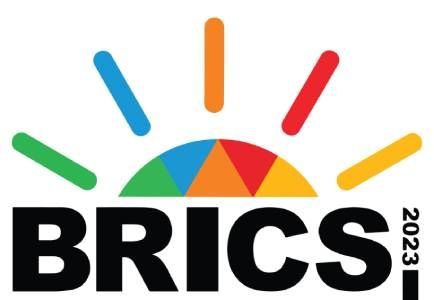BRICS Confirms Commitment to International Legality, UN Parameters on Sahara Issue
The leaders of the BRICS countries, meeting in Johannesburg on August 23, 2023, adopted the Johannesburg Declaration II, in which they reaffirmed their commitment to multilateralism, in line with the principles of the United Nations Charter, which defends territorial integrity, non-interference in the affairs of States and the peaceful settlement of disputes. The Declaration underlined the importance of reaching a solution to the Moroccan Sahara issue, in accordance with the Resolutions and parameters of the Security Council, aimed at achieving a lasting political solution to this artificial conflict. It undeniably confirms the prevalence of the Moroccan position, which has consistently insisted on the need to respect and support this process conducted exclusively under UN auspices. Disavowed by the BRICS in its abortive attempt to harm the Kingdom’s interests, Algeria (and its separatist puppet) finds itself, once again, against an international legality that it never ceases to seek to transgress. Algiers’ gesticulations ended, for the umpteenth time and much to the despair of their instigators, with a clear and unambiguous call for respect, explicitly reiterated by the BRICS, for the political process conducted under the exclusive aegis of the United Nations Security Council. Moreover, the international community, whether at the UN, in African countries or around the world, backs the Moroccan autonomy initiative, which perfectly meets all the parameters of pragmatism, realism, compromise and sustainability required by the Security Council. In this respect, the Security Council considers that the resumption of the political process can only take place within the framework of round tables, with the full participation of Morocco, Algeria, the “polisario” and Mauritania. No interaction between the parties, collectively, can take place without scrupulous respect for this framework established by the Security Council. Attempts to include this issue in the debates were rejected by the BRICS members, none of whom referred to it in their national declarations. These countries, none of which recognize the puppet entity, have thus clearly rejected the instrumentalization of the BRICS to serve lost causes. This blow sounds like a lesson to those who persist in trying to give international resonance to a viscerally isolated way of thinking. The BRICS’ stance demonstrates the group’s attachment to its relations and strategic partnerships with the Kingdom, despite attempts at foreign interference. Indeed, Morocco has strategic partnerships with 3 of the 5 BRICS countries, and particularly dynamic and strong relations with Brazil, within the framework of a multidimensional relationship, including political, economic, agricultural and commercial aspects. The Summit also ratified the humiliating rejection of Algeria’s bid to join the group of high-performing economies. In fact, neither President Tebboune, nor the Prime Minister, nor even the Minister of Foreign Affairs were willing to make the trip and face up to this affront, despite their close relations with the Pretoria regime. The choices and strategies adopted by the BRICS are, to say the least, in stark contrast to Algiers’ much-vaunted aspirations to become a member of a grouping with which, in the final analysis, it seems to have little in common.

